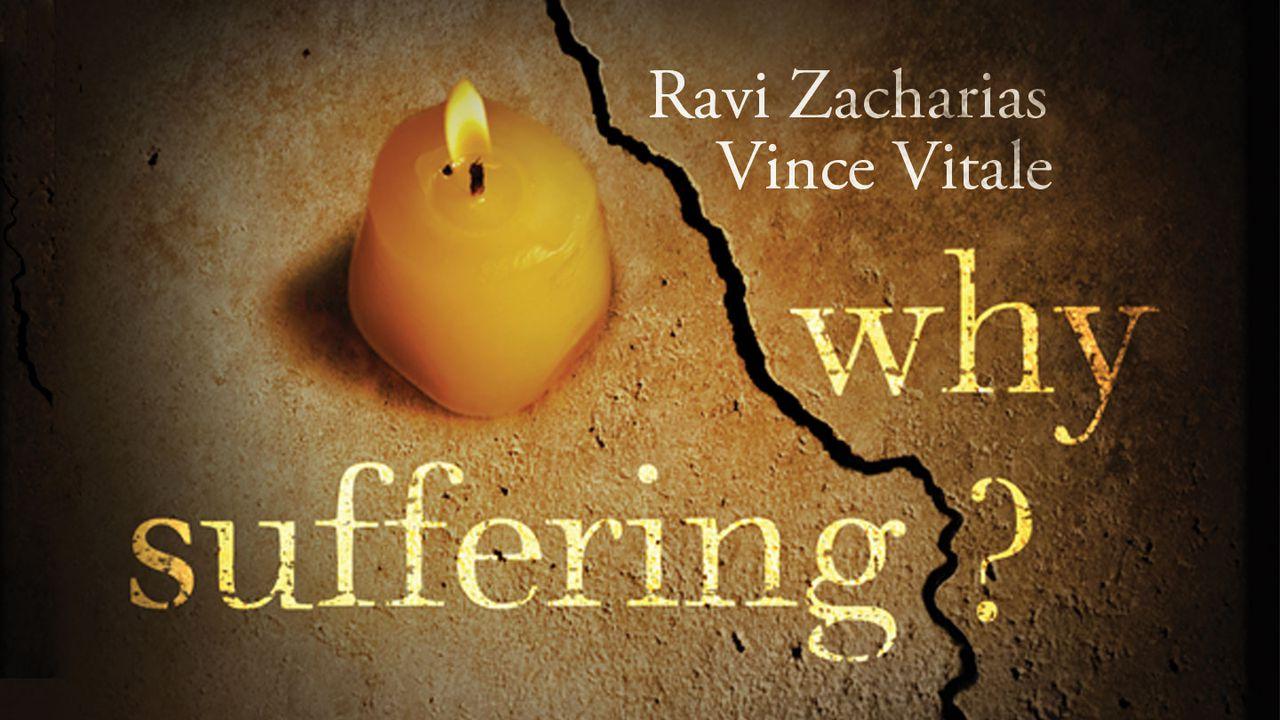Why SufferingSample

Naturalism and Suffering
C. S. Lewis once stated that when a ship is on the high seas, it must answer three questions. The first is how to keep from sinking—personal ethics; the second is how to keep from bumping into other ships—social ethics; and the third is the most important of all, to know why the ship is out on the high seas in the first place—the essence of ethics.
For the atheist, this third question is the thorniest of all problems and is often just cavalierly answered: “There is no purpose to being out on this sea; it’s just blind chance.” “There is no reason for us being here so we must make up our own reasons.” For the atheist, then, the most important of the three questions is moot and the only ethics he or she can really talk about are personal and social ethics.
Personal is one’s individual choices. Social is cultural values dressed up as political theory. In one culture or religious belief murder can be justified if it’s branded “honor killing” or “blasphemy” against a prophet. In other cultures, right and wrong are categorized as “politically correct” or “politically incorrect,” which moves one’s choices entirely out of the realm of morality.
Finding the purpose of life underlies all approaches to solving this mystery of evil and suffering. However, naturalism seldom seems to ask itself the same questions it poses to those who believe that life has an ultimate cause and purpose. So the complexity of the question lies not in the two struggles of personal ethics and social ethics; rather it lies in the third ethic—why are we here at all?
Somebody else’s purpose will govern our purpose if we ourselves don’t define it clearly for now and for the future. All personal and social ethics are subservient to a meta-narrative for life itself. Who we are in essence governs why we are in existence. This question of purpose must be answered if we are to find significance in life and hope in death; from that follows the meaning of life even through suffering.
For the naturalist, cause and effect is all material and each of us just has to come in line with that. There is, in the end, the loss of individual value; without purpose, suffering is unexplainable.
Worldviews are written. When we view the world, we must ask, “Who is the writer?” Who is loving and creative enough to write meaning into even the most difficult parts of the story? Who would write Himself so deeply into our story that it would cost Him His very life? And if He has done so, will we lose sight of Him? Will we replace His name and one day forget it altogether? Or will we recognize His authorship and trust that an author who cares that much is an Author who can write redemption into our unfinished story?
Reflection Questions
- Why is understanding the purpose of life necessary for solving the mystery of evil and suffering?
- If naturalism is fundamentally based on material cause and effect, as well as blind chance, why will it never be able to provide meaningful answers to life’s biggest questions?
Bible Verses
- Proverbs 3:5–7
- Micah 6:8
- Psalm 1
Scripture
About this Plan

This study is based on the book WHY SUFFERING? written by Christian apologist Ravi Zacharias and Vince Vitale, Dean of the Zacharias Institute, It is written for the Christian struggling for an answer, the seeker who thinks suffering disproves God’s existence, and the sufferer who needs a glimpse of a loving God.
More
We would like to thank RZIM for providing this plan. For more information, please visit: https://rzim.org









